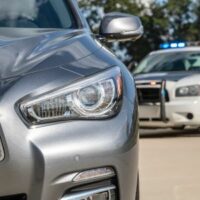Defending Delaware DUI Charges Based Upon Impairment

Many motorists focus on how their blood alcohol concentration (BAC) could be used against them in a Delaware drunk driving case, knowing the legal limit is .08 percent. This point is what leads some drivers to refuse to blow or submit to another chemical test, due to the misconception that BAC is the only factor that can lead to a conviction. In fact, under Delaware’s drunk driving statute, it is illegal to drive while “under the influence” of alcohol – a separate provision from the law related to the legal limit. It is possible for a prosecutor to secure a conviction without any proof of BAC, under the theory that the motorist was impaired regardless of test results.
In practice, most DUI cases are based upon BAC. Impairment may enter the picture if you refused to blow, or where there was some issue with testing. In such a case, you must employ different strategies to fight the charges, and a Wilmington driving under the influence (DUI) defense attorney can help. Options may include:
The facts contradict the officers’ observations. You can guess the factors that police assess during interactions with drivers, but you may have information to contest their impressions. For instance:
- Your bloodshot eyes could be the result of allergies.
- The smell of alcohol came from your passenger, for whom you were serving as designated driver.
- You fumbled for your driver’s license and registration because you were extremely nervous.
Witnesses dispute police impressions of impairment. At trial, you can put witnesses on the stand to testify that you were not impaired. A co-worker could verify that you were at work, so you could not have been drinking. If you were with a group of friends who witnessed you not drinking at a bar, their testimony – along with a receipt showing only non-alcoholic beverages – could be powerful evidence to defend impairment charges.
There are reasons you performed poorly on field sobriety tests. FSTs are notorious for turning up false-positive results for drunk driving, because they do not account for the impacts of weather, a driver’s medical conditions, and many other factors. There may be defenses for any of the FSTs commonly utilized by officers, including:
- The One-Legged Stand, which can lead to failures if you have weakness or injury to your lower extremities;
- The Walk-and-Turn Test, the results of which you could contest if uneven surfaces or slippery road conditions affect your performance.
- The Horizontal Gaze Nystagmus, a test that measures how your eyes track an object as it is moved in front of your nose. If you have a visual or optical condition, this point could be raised as the reason you failed.
Trust a Delaware DUI Defense Lawyer to Develop a Strategy
Drunk driving charges based upon impairment can lead to the same penalties as a conviction for DUI over the legal limit, so defenses are critical. Recall that you can still be convicted without BAC if you refuse to blow, raising the stakes considerably. To learn more about potential strategies, please call 302.600.1262 or go online to set up a consultation with Attorney Michael W. Modica.
Resource:
delcode.delaware.gov/title21/c041/sc09/index.html#4177

